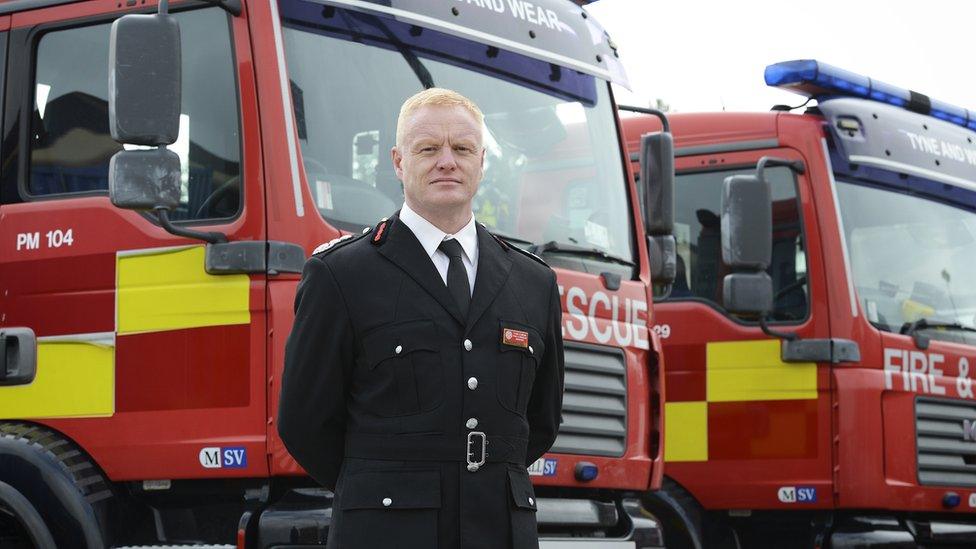Retiring County Durham fire chief slams funding cut dangers
- Published
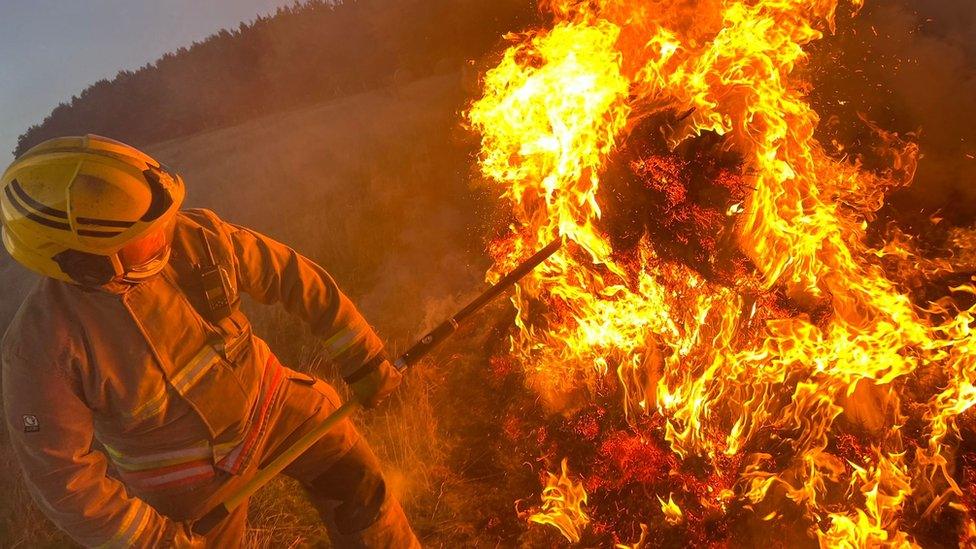
County Durham and Darlington Fire and Rescue Service could lose up to 50 firefighters due to funding issues, its chief has warned
A departing fire chief has warned that funding cuts to his brigade are putting lives at risk.
Stuart Errington, who is retiring after 30 years with County Durham and Darlington Fire and Rescue Service, said it could lose 50 firefighters.
In a letter to Communities Secretary Michael Gove, Mr Errington called for increased government funding and a change in council tax limits.
A government spokesperson said it was taking the concerns "on board".
Mr Errington said the situation was "as bad as I have known it", adding: "Issuing this warning is not something we would ever do lightly, but we have been left with no option we are in a grave situation, with lives at risk."
He wrote he was proud to have been a firefighter in County Durham just as his father Eddie was for 32 years and his son Alex now is.
"However, I have never felt more fearful for the future of the highly respected and professional service that I love," he said.
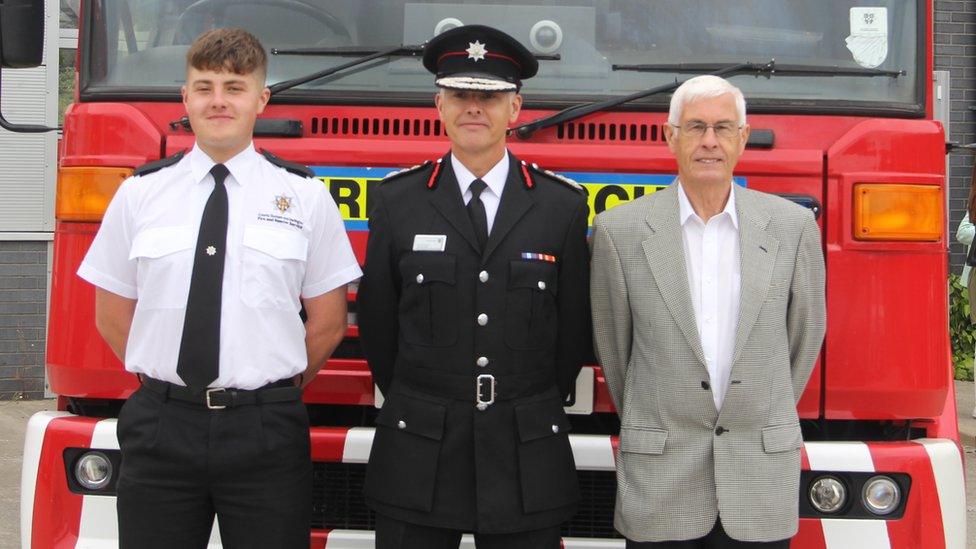
Stuart Errington (centre) said he was proud to work for the same brigade as his father Eddie and son Alex
Mr Errington said the brigade was in a "perilous position" having faced a real-term loss in government funding of £10m over the last 12 years once inflation was taken into account.
He said a £1.3m annual grant to maintain buildings and equipment had also been "removed by stealth" since 2015.
Mr Errington said the North East was "disproportionately impacted" by government-imposed restrictions on council tax precepts due to the low number of Band A and B homes in the area and high levels of deprivation - meaning many residents are exempt or get discounts on their bills.
"Currently, we are limited to a 2% increase on Band D properties that would bring in £380,000 in additional income," Mr Errington said.
"However, inflation rising to 10% adds a £750,000 deficit to finances that are already down to the bone, and that is before we consider pay pressures."
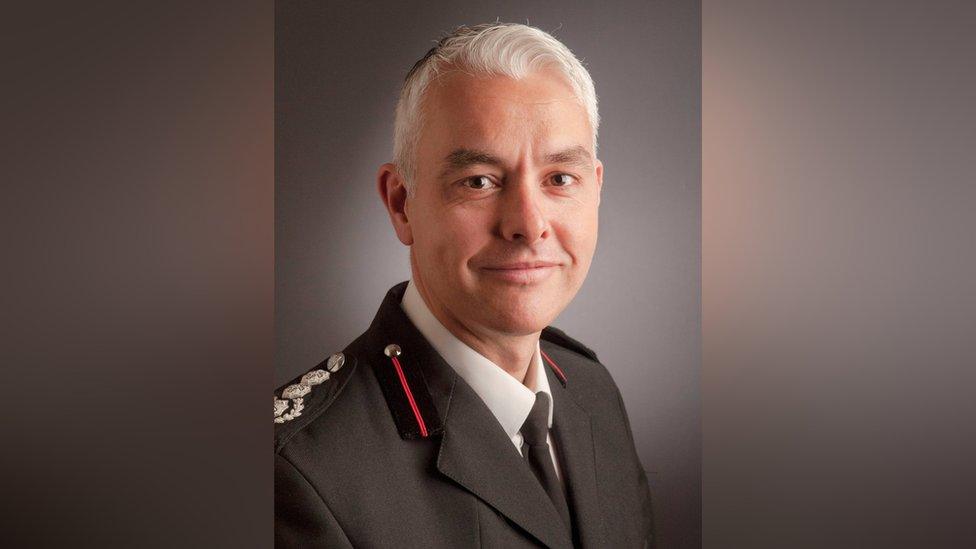
Stuart Errington has worked for the service for 30 years
He said raising the fire service's precept by £5 for Band D properties (the equivalent of 10p per week) would generate £30m and be "a small price to pay for public safety".
Mr Errington added that there had been a rise in the number of climate change related wildfires and the North East had "the highest levels of arson and deliberate fires of any region in the country".
He said his brigade responded to more than 8,000 emergencies in 2021, completed almost 20,000 home fire safety checks and administered more than 55,000 Covid-19 vaccinations.
"My priority has always been to protect frontline posts, but that will no longer be possible," Mr Errington said, adding: "We are looking at the unavoidable loss of between 15 and 50 firefighters.
"This is an emergency and we need an urgent response before it is too late."
In a statement, the Department for Levelling Up, Housing and Communities said: "We understand that fire and rescue authorities - like all parts of local government - are being impacted by inflation and we are working with councils to understand how this will affect their budgets.
"We will be laying out plans for the Local Government Finance Settlement in due course and are taking the concerns from County Durham and Darlington Fire and Rescue Service on board."
Durham County Councillor and Fire Authority chairman John Shuttleworth said the situation was "at the point of desperation" with a reduction in staff and fire engines needed if costs are not met.
Durham's "core spending power" increased by £1.5m to £31.4m for 2022/23 compared to the previous year, according to government figures.

Follow BBC North East & Cumbria on Twitter, external, Facebook, external and Instagram, external. Send your story ideas to northeastandcumbria@bbc.co.uk, external.
Related topics
- Published26 October 2022
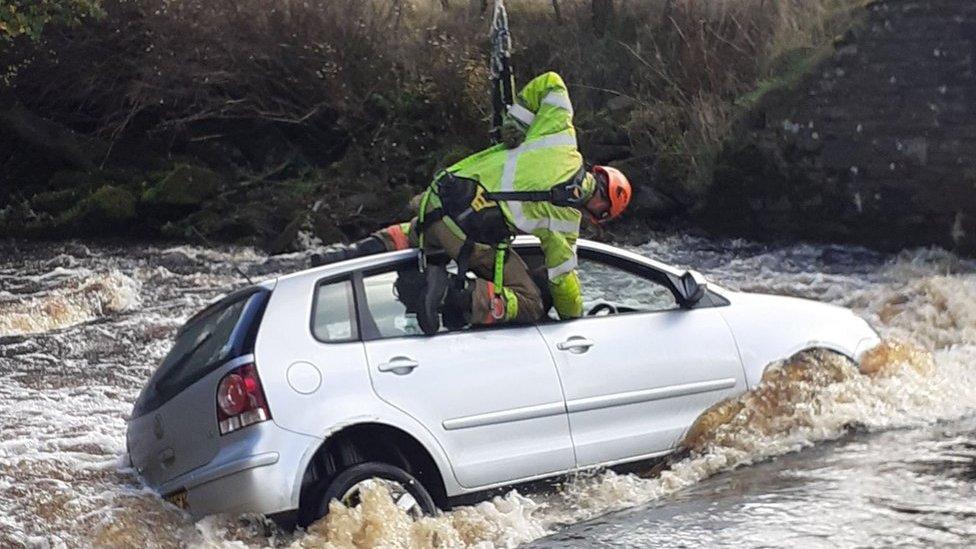
- Published23 October 2022
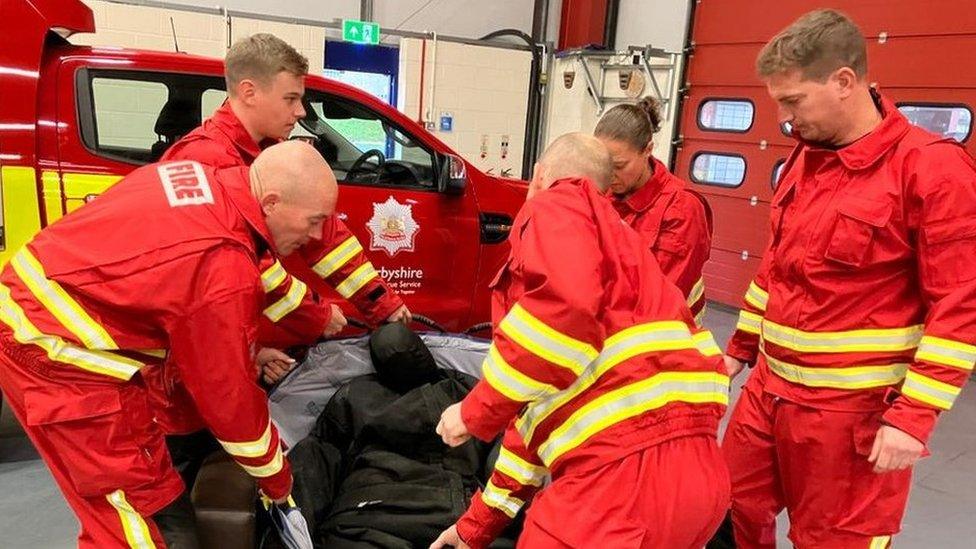
- Published17 October 2022
